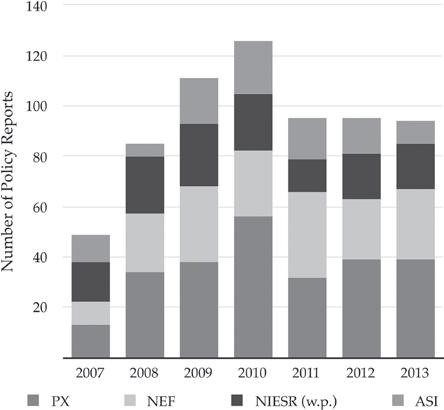1 Thinking Under Pressure: Think Tanks and Policy Advice After 2008
An explanation was needed, one was found; one can always be found; hypotheses are the commonest of raw materials. Henri Poincaré, on Lorentz’s theory of aether. (Bourdieu 1988: 159)
On Monday, 15 September 2008, the investment bank Lehman Brothers filed for bankruptcy after the US government decided not to provide it with emergency liquidity. It had already done so in the preceding months for three other large financial institutions—Bearn Stearns, Fannie Mae, and Freddie Mac—and enough was enough. That week, stock markets across the world went into tailspin and governments rushed to scrap together bailout plans of bewildering proportions. The world economy entered its worst recession since 1929. Mainstream economists—who dominated thinking in policymaking, finance, and the social sciences—had told us this was just not possible. A few years before, Nobel Memorial Prize in Economic Sciences winner Robert Lucas Jr. had opened his American Economic Association’s presidential address with the following words:
© The Author(s) 2019 M. González Hernando, British Think Tanks After the 2008 Global Financial Crisis, Palgrave Studies in Science, Knowledge and Policy, https://doi.org/10.1007/978-3-030-20370-2_1
1




